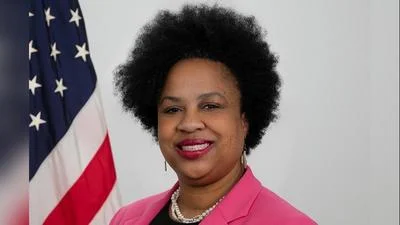Winnetka | Winnetka village facebook https://www.facebook.com/photo/?fbid=619516530174947&set=a.351563583636911&__tn__=%2CO*F
Winnetka | Winnetka village facebook https://www.facebook.com/photo/?fbid=619516530174947&set=a.351563583636911&__tn__=%2CO*F
Winnetka Village Council considered two proposed changes to the village code around renewable energy sources, which underwent adjustments in 2019.
During the Feb. 21 meeting, which was streamed on YouTube, the council heard a proposal from staff to increase the kilowatt amount residents would be permitted to install on their properties and deliver excess energy to the village’s electric system. It also would develop policies for remaining or backlogged credit and determine the exact language for mixed-use locations as well as outline the use of their own sources as well as the city utilities.
“What we're talking about is qualifying customers to install renewable energy systems at their homes or businesses, properties and deliver excess energy to the village's electric system,” Brian Keys, the village’s director of Water and Electric, said. “So we're talking about this interconnection, the regulations are related to how that would transpire.”
Keys told the council during the meeting that the proposed ordinance would permit 25 Kilowatts for interested parties, an increase from the previous cap set at 10 kilowatts. Greater amounts could be considered. He told the council there are about 10 homes currently use this bi-directional metering with their own energy sources, with another three or four residences currently going through the application process and a couple of others expressing an interest in the program
“And at this point in time we're proposing changes to the code, and the changes are going to expand basically the opportunity for customers to install renewable energy, provided it meets their consumption pattern, it's going to address administrative issues, and really basically also ensure that we're in experience with the state legislation,” Keys told the council.
During the meeting, one resident told the council about his energy use for charging his Tesla car and what the changes would mean for residents who are trying to be greener. Council asked him questions and thanked him for his feedback.
“We really want to meet their needs,” Keys said. “We need to consider if there should be considerations.”
Council agreed to tie the summer energy retail credit rate to the customer’s original rate classification.





 Alerts Sign-up
Alerts Sign-up